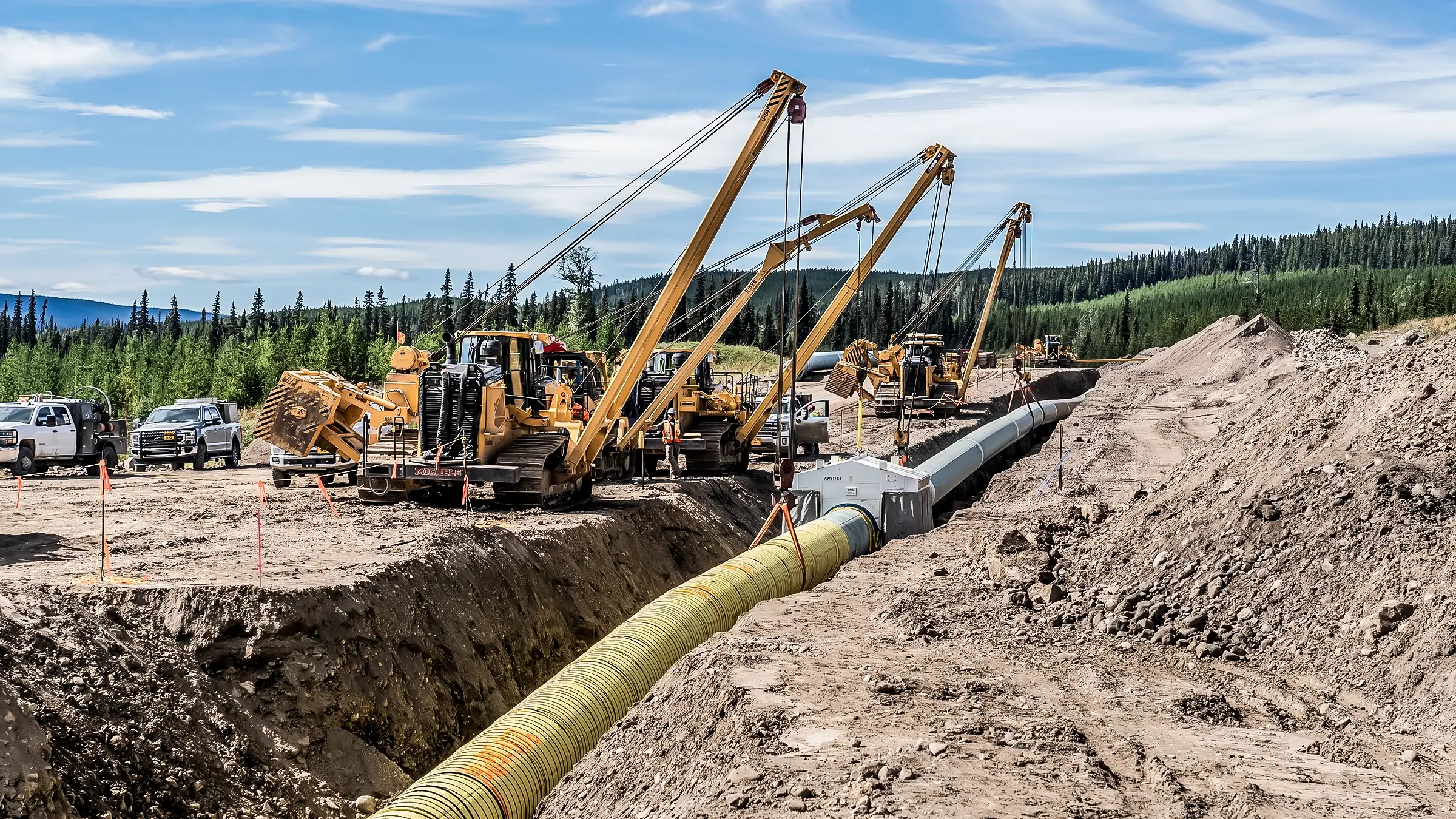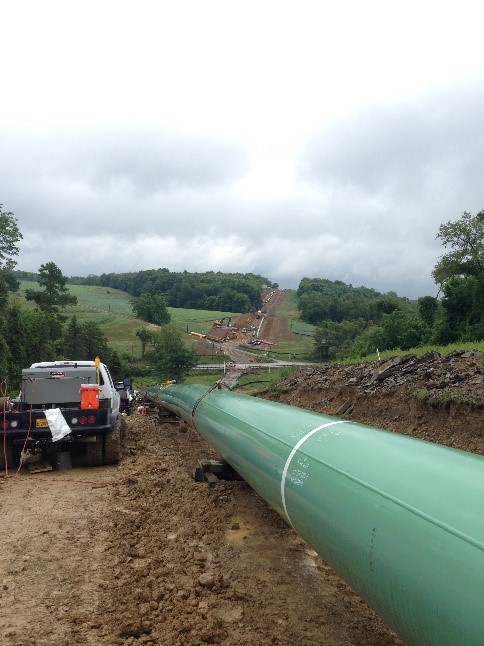Recognizing the Trick Features of Pipeline Providers and Their Effect On Effectiveness
Pipeline solutions play a vital duty in various industries, affecting functional efficiency noticeably. Secret attributes, such as advanced tracking innovations and upkeep methods, are vital for reducing downtime. In addition, governing conformity warranties security and environmental management. Nonetheless, the interaction between design, facilities, and financial elements can make complex these processes. Comprehending just how these components effect total effectiveness elevates essential inquiries regarding finest methods and future growths in the area.
The Duty of Technology in Pipeline Surveillance
As innovations in modern technology remain to advance, the importance of effective pipeline tracking has become increasingly evident. Modern pipeline systems rely upon advanced tracking devices that enhance operational performance and safety and security. Technologies such as real-time data analytics, sensors, and drones give operators with prompt understandings into pipeline conditions, allowing them to discover leakages, deterioration, and various other possible problems prior to they intensify into considerable problems.
In addition, the combination of Net of Points (IoT) gadgets has transformed traditional monitoring methods, enabling continuous security and automated coverage. This proactive strategy not just reduces dangers however additionally optimizes upkeep routines and resource appropriation. Furthermore, advanced software application platforms assist in information visualization and analysis, empowering decision-makers to react promptly to anomalies. Collectively, these technological developments not only improve pipe honesty however additionally foster ecological stewardship by mitigating the potential influence of leaks and spills.
Maintenance Strategies for Improved Performance
Effective upkeep methods are necessary for enhancing pipe performance. Implementing predictive maintenance strategies, adhering to regular inspection methods, and developing robust emergency situation feedback plans can significantly enhance operational reliability. These techniques not just reduce downtime however likewise add to the general safety and security and honesty of pipeline systems.
Anticipating Maintenance Strategies
Predictive maintenance strategies are progressively acknowledged for their capacity to boost functional performance in pipeline solutions. By leveraging information analytics and keeping an eye on innovations, these strategies make it possible for drivers to prepare for equipment failures prior to they take place. This proactive method reduces unexpected downtime, lowers maintenance prices, and prolongs the lifespan of critical possessions. Sensing units and IoT devices play a critical duty in accumulating real-time data, allowing for the assessment of equipment wellness and efficiency trends. Artificial intelligence formulas assess this information to recognize patterns and forecast possible issues. Pipeline drivers can schedule maintenance tasks during non-peak times, optimizing resource appropriation and ensuring continuous procedure. Inevitably, the fostering of predictive maintenance cultivates a much more reliable and reliable pipe facilities.

Routine Assessment Protocols
Regular assessment procedures act as a keystone of upkeep strategies focused on boosting performance in pipe operations - Pipeline services Midland Texas. These methods include methodical assessments of pipeline integrity, focusing on identifying potential problems before they intensify. Normal evaluations normally include aesthetic assessments, leak detection modern technologies, and pressure tracking to ensure peak performance. By sticking to established routines, operators can recognize corrosion, product wear, or obstruction, thereby lessening downtime and repair work expenses. Furthermore, information accumulated throughout assessments can notify predictive upkeep efforts, permitting for a positive approach to pipeline administration. Eventually, regular evaluations not just extend the life-span of pipe facilities but likewise add to more secure and extra reliable transport of resources, strengthening total operational effectiveness
Emergency Situation Action Preparation
Emergency situation action preparation is important for maintaining effectiveness in pipe operations, making certain that operators are prepared to attend to unpredicted events promptly and effectively. A well-structured emergency situation feedback strategy consists of clear procedures, designated duties, and communication strategies to alleviate dangers related to pipeline failings. Regular drills and training improve group preparedness and acquaint personnel with emergency situation treatments. In addition, having readily available resources, such as spill control tools and emergency contact listings, can considerably decrease feedback times. By integrating real-time tracking innovations, drivers can rapidly identify and respond to problems, lessening environmental influence and operational downtime. Eventually, a thorough emergency situation reaction strategy not just safeguards properties and workers yet additionally strengthens the total performance of pipeline services.
Governing Compliance and Security Requirements
Regulatory conformity and safety and security criteria play an important role in the pipe solutions sector. Midland pipeline construction company. Complying with industry policies assures that firms carry out efficient safety procedures and take the chance of administration methods. This commitment not just secures personnel and the atmosphere however likewise enhances general operational performance
Conformity With Market Rules
Compliance with industry regulations is necessary for ensuring the safety and effectiveness of pipeline procedures. Regulatory frameworks, such as those established by the Environmental Protection Company (EPA) and the Pipeline and Hazardous Materials Safety Administration (PHMSA), established rigid requirements that drivers must stick to. These policies cover numerous facets, including pipeline style, construction, maintenance, and monitoring, ensuring that systems operate securely and properly. Non-compliance can result in severe penalties, operational delays, and ecological risks. By adhering to these guidelines, pipe companies not only secure public safety and the environment but also boost their functional efficiency. Inevitably, regulative compliance promotes trust fund among stakeholders, ensuring that pipeline solutions can run perfectly in a competitive landscape while fulfilling lawful obligations.

Security Protocol Implementation
Efficient security protocol implementation is an essential component of pipe procedures, very closely connected to regulatory compliance and security standards. Sticking to these procedures not only guarantees the protection of employees however additionally safeguards the environment and facilities. A robust security framework includes normal training, detailed assessments, and making use of suitable safety and security tools. Organizations needs to stay attentive in upgrading their procedures to reflect changes in regulations and technical improvements. Compliance with recognized safety criteria decreases the risk of accidents and improves functional performance. Furthermore, a society of security fosters staff member interaction and accountability, adding to general business success. Eventually, effective safety protocol application is critical in maintaining the honesty of pipeline solutions and attaining lasting sustainability in operations.
Threat Administration Techniques
Carrying out robust find threat monitoring methods is vital for assuring that pipe operations comply with regulative requirements and safety criteria. Organizations needs to identify potential risks and examine dangers related to pipe activities. This entails carrying out comprehensive inspections, utilizing innovative tracking technologies, and maintaining compliance with market laws. Regular training for employees on safety methods enhances situational recognition and prepares teams to respond effectively to emergencies. Additionally, developing backup plans and performing drills can substantially mitigate threats. Working together with governing bodies makes sure positioning with advancing safety and security standards. By focusing on danger administration, pipe solutions can improve operational effectiveness while guarding both the environment and public safety. Ultimately, a positive strategy to take the chance of monitoring fosters a society of safety within the market.
Pipeline Design and Infrastructure Considerations
How can the design and facilities of pipes influence overall operational efficiency? The setup of pipes plays a critical role in establishing their effectiveness. Efficient style minimizes friction losses, thus reducing energy intake during fluid transportation. Elements such as size, product option, and design straight influence flow rates and maintenance demands.
Additionally, tactical positioning of valves and keeping track of systems improves functional control and safety. Midland oilfield pipeline services. Infrastructure factors to consider, including ease of access for repair and maintenance, substantially impact downtime and total productivity
Furthermore, integrating sophisticated innovation for real-time tracking facilitates punctual detection of leaks or ineffectiveness, making sure speedy actions to issues. The general structural stability, influenced by product resilience and environmental variables, additionally forms long-lasting functional success. Consequently, thoughtful layout and robust facilities are necessary for making best use of pipe performance, ultimately adding to the integrity and profitability of pipeline services.
Environmental Impact and Sustainability Practices
While the need for pipe solutions remains to expand, recognizing the environmental effect and adopting sustainability practices has come to be progressively essential. The construction and operation of pipelines can especially affect environments, wildlife habitats, and water resources. To alleviate these effects, business are executing advanced technologies and practices intended at reducing discharges, preventing spills, and lessening land disruption.
Sustainability initiatives often consist of utilizing ecologically pleasant materials, boosting power performance, and utilizing renewable resource sources to power procedures. In addition, firms are increasingly conducting detailed ecological assessments prior to project initiation, making certain conformity with More Info regulations and stakeholder engagement.

Expense Monitoring and Economic Consider Pipeline Providers
As the pipe sector grows, efficient price administration and recognizing financial elements end up being vital for keeping competition. Business encounter numerous financial pressures, including changing material costs, labor costs, and governing conformity charges. To browse these challenges, pipeline provider have to adopt strategic economic preparation and budgeting techniques.
Buying innovation can improve functional performance, eventually minimizing prices with time. Additionally, reliable project monitoring assurances that sources are assigned efficiently, lessening delays and unforeseen expenses.

Market problems, such as need for energy and geopolitical variables, likewise influence economic practicality. Firms have to remain nimble, adjusting their approaches in action to these external factors.
Regularly Asked Inquiries
What Are the Different Kinds of Pipeline Solutions Available?
Various kinds of pipeline solutions consist of transportation, storage, upkeep, assessment, and fixing. Each service plays a vital role in guaranteeing the seamless motion of products, improving safety and security, and try this reducing operational disturbances throughout different sectors.
Exactly How Frequently Should Pipeline Inspections Be Performed?
Pipeline examinations should be carried out frequently, commonly each to three years, relying on the type and problem of the pipe. Much more regular evaluations may be required for older or high-risk pipelines to assure security and integrity.
What Are the Main Causes of Pipeline Failings?
The main reasons for pipe failings include corrosion, damaged building and construction, material problems, outside damage, leakages, and operational errors. Each aspect adds significantly to potential dangers, highlighting the importance of regular upkeep and tracking for safety.
Just How Can Companies Boost Pipeline Service Reliability?
Firms can improve pipeline service reliability by executing regular maintenance schedules, making use of innovative surveillance technologies, carrying out extensive examinations, investing in staff member training, and adopting proactive threat monitoring techniques to expect and minimize prospective failings.
What Role Do Operators Play in Pipeline Services?
Operators play a necessary function in pipeline solutions by making certain safe transport, preserving tools, keeping an eye on system integrity, collaborating upkeep, and reacting to emergency situations. Their knowledge directly affects functional effectiveness and minimizes interruptions in service delivery.